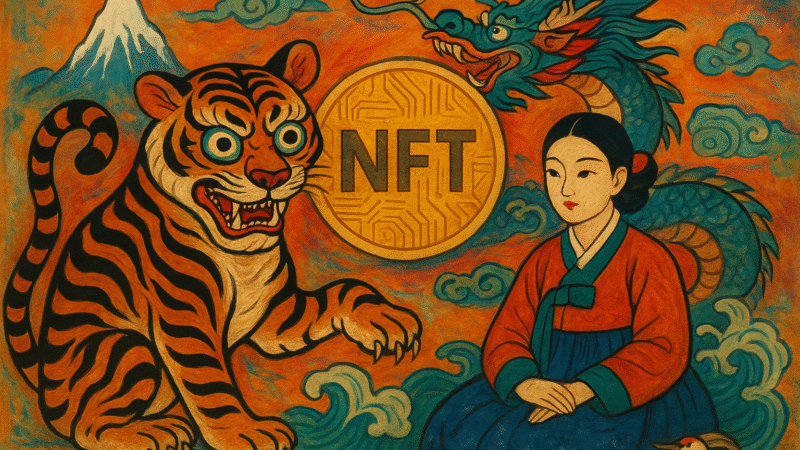Canary Capital’s NFT ETF Filing: A Watershed Moment For Web3 And Traditional Finance
Introduction
In a move that could reshape the boundary between decentralized digital culture and institutional finance, Canary Capital, a mid-sized asset management firm, has filed for the first-ever Exchange-Traded Fund (ETF) that would directly invest in NFTs (non-fungible tokens) and NFT-related assets. The fund, tentatively named the Canary NFT Select ETF, aims to include blue-chip digital collectibles such as Pudgy Penguins, Bored Ape Yacht Club, and governance tokens like $PENGU, making it one of the most unorthodox ETF proposals ever submitted to the Securities and Exchange Commission (SEC).
This article provides an in-depth look at the filing’s context, the mechanics of NFT-based ETFs, industry reactions, the economic implications, regulatory concerns, and what this could mean for the long-term convergence of blockchain technology and Wall Street finance.
The Rise Of NFTs As A Financial Asset Class
NFTs—blockchain-based digital tokens that certify ownership and authenticity of unique assets—have evolved from internet novelties to serious digital commodities. Initially centered around digital art and memes, NFTs are now tied to gaming, music, virtual real estate, fashion, ticketing, and digital identity. Their ability to represent ownership in both virtual and real-world contexts makes them powerful instruments of value exchange.
Despite dramatic market fluctuations since the 2021 NFT boom, a core group of “blue-chip” NFT collections has retained cultural and economic traction. According to analytics firm NonFungible.com, the top 10 NFT collections represent over 60% of total market capitalization, led by names like CryptoPunks, BAYC, Azuki, and Pudgy Penguins. These tokens have attracted speculative interest, celebrity endorsements, and even venture capital funding.
Canary Capital’s ETF is therefore attempting to capitalize on this niche yet rapidly maturing space, offering traditional investors a regulated entry point into an otherwise volatile and opaque digital asset market.
What Is The Canary NFT Select ETF?
The proposed Canary NFT Select ETF would be the first US-listed fund designed to hold a basket of NFTs and native NFT tokens, potentially including:
- Pudgy Penguins NFTs.
- Bored Ape Yacht Club (BAYC) collectibles.
- Tokens like $PENGU (native to Pudgy Penguins ecosystem).
- Governance tokens from NFT marketplaces.
- Infrastructure tokens from projects like Ethereum, Arbitrum, or Immutable X.
Unlike conventional ETFs that invest in stocks, commodities, or bonds, this fund would purchase digital assets directly from marketplaces like OpenSea, Blur, and Magic Eden. The assets would be held in cold storage wallets managed by a regulated custodian, possibly Coinbase Custody or Anchorage Digital.
The ETF aims to provide exposure to digital culture and asset innovation, while also lowering barriers to NFT ownership. Investors who lack the technical know-how or risk appetite to manage digital wallets and gas fees could theoretically benefit from NFT appreciation without holding the tokens directly.
Regulatory And Technical Hurdles
The ETF’s novelty is also its greatest liability. The SEC has long resisted crypto ETFs that involve direct asset holdings. Although the January 2024 approval of spot Bitcoin ETFs was a landmark event, NFTs differ sharply from fungible cryptocurrencies in liquidity, valuation, and transparency.
Key Regulatory Issues
Valuation Standards: NFTs are not traded on centralized exchanges, and prices can fluctuate wildly based on community hype or influencer tweets. This poses serious questions about how Net Asset Value (NAV) will be calculated.
Liquidity Constraints: Unlike ETFs holding shares of public companies, NFTs can be illiquid, sometimes taking weeks to find a buyer. Redemption mechanics for the ETF would be severely impacted.
Custody and Fraud Prevention: NFTs have been targets of hacks, rug pulls, and wash trading. Regulators will demand robust risk controls and audit trails.
Market Manipulation: With no central regulation of NFT markets, the potential for insider trading, price spoofing, and artificial volume is high.
It is likely the SEC will either delay or outright reject the filing unless these concerns are addressed in detail. Still, Canary’s move forces regulators to grapple with NFTs as a potential financial asset class, something the industry has been anticipating.
The Case For NFT-Based ETFs
While critics argue NFTs are too volatile and niche for mainstream portfolios, proponents see potential in tokenized exposure for several reasons:
Diversification: NFTs often move independently of traditional assets, offering new diversification angles for crypto-heavy portfolios.
Cultural Capital: Iconic NFT projects have become pop culture staples. Their value is tied not only to scarcity but also to brand affinity, IP rights, and digital identity.
On-chain Analytics: Unlike most real-world assets, NFT ownership and transaction data are entirely on-chain and verifiable in real-time.
Web3 Exposure: ETFs like this one allow institutions to gain exposure to Web3 without direct involvement in governance, technical integrations, or compliance issues.
Wall Street’s Divided Reaction
Canary’s filing has sparked sharply contrasting responses across the financial world.
Bullish Analysts at crypto-native funds like Pantera Capital and Framework Ventures see this as a sign of legitimacy for NFT markets, especially if it drives demand for blue-chip collections and NFT infrastructure tokens.
Skeptical Institutional Players warn that retail investors could be misled about the risks. Since NFT prices are not backed by revenue or earnings, they behave more like art or luxury assets than stocks or commodities.
ETF Providers like BlackRock and VanEck have remained silent, though insiders suggest several firms are exploring their own NFT index funds, especially tied to metaverse and gaming.
Canary Capital’s Strategy And Risk Disclosure
Founded in 2019, Canary Capital is a relatively small firm compared to BlackRock or Fidelity, but it has made a name in niche innovation-focused funds. Their filing includes robust legal frameworks and outlines major risks including:
- Extreme Volatility.
- Custodial Compromise.
- Smart Contract Exploits.
- Market Collusion.
The fund also acknowledges that “there may be periods where no assets can be priced or sold,” implying high NAV uncertainty. However, Canary believes that younger investors and tech-forward institutions will tolerate these risks in exchange for cultural relevance and long-term growth.
Implications For The Broader Crypto Ecosystem
If the Canary NFT ETF gains regulatory approval, it could mark the beginning of a new ETF category. Possible consequences include:
Mainstreamization of NFT Collectibles
Institutions entering the NFT market could lead to higher floor prices and more robust secondary markets.
Financialization of Culture
Just as sneaker culture and art auctions have become investable phenomena, NFTs could be further absorbed into the finance world.
Growth of NFT Infrastructure
Custody, insurance, auditing, and analytics providers for NFTs would see a surge in demand.
Blurred Lines Between Art and Finance
If NFT ETFs become common, debates over the intrinsic vs. speculative value of art will intensify.
The Road Ahead: Speculative Or Revolutionary?
In one sense, the Canary ETF filing could be dismissed as premature hype. But in another, it mirrors the early skepticism of internet stocks in the 1990s or Bitcoin ETFs a decade ago. If NFTs survive their current down cycle and evolve into serious instruments of commerce and self-expression, then ETFs will be a necessary bridge between Web3 and Wall Street.
Whether the SEC approves the filing or not, Canary Capital has already forced a conversation that financial institutions can no longer avoid. The implications reach beyond just NFTs—they challenge the financial system to integrate decentralized value networks that were once viewed as antithetical to regulation and structure.
Conclusion
Canary Capital’s filing for a dedicated NFT ETF is a milestone that marks the next logical step in the evolution of digital assets. While risks abound—from valuation uncertainty to illiquidity and regulatory resistance—the potential for mainstream financial adoption is too significant to ignore. If successful, this ETF could unlock a wave of innovation, enabling investors to engage with the digital cultural economy through familiar, regulated financial instruments.
For now, all eyes are on the SEC. Their decision will either greenlight a new era of NFT-based investment products or draw a firm line against further financialization of Web3. Either way, the experiment has begun—and its outcome may define the next frontier of fintech.



